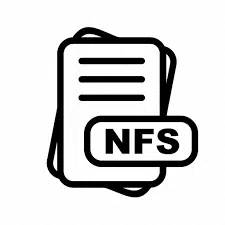-
- Fixing NFSv4 Delegation Failures with Kernel 6.14
- Understanding NFSv4 Delegation
- Common Causes of Delegation Failures
- Configuration Steps to Fix NFSv4 Delegation Failures
- Step 1: Verify NFS Server Configuration
- Step 2: Check Client Configuration
- Step 3: Monitor Network Connectivity
- Step 4: Review Kernel Logs
- Step 5: Update Kernel and Packages
- Practical Examples
- Best Practices for NFSv4 Configuration
- Case Studies and Statistics
- Conclusion
Fixing NFSv4 Delegation Failures with Kernel 6.14
Network File System version 4 (NFSv4) is a widely used protocol for file sharing across networks, particularly in Linux environments. With the release of kernel 6.14, users have reported various issues related to delegation failures, which can significantly impact performance and reliability. This guide aims to provide a comprehensive approach to diagnosing and fixing these delegation failures, ensuring optimal NFSv4 performance in your environment.
Understanding NFSv4 Delegation
NFSv4 delegation is a mechanism that allows a client to cache file data and metadata, reducing the need for constant communication with the server. This improves performance but can lead to issues if the server and client become out of sync. Understanding how delegation works is crucial for troubleshooting related failures.
Common Causes of Delegation Failures
Before diving into the configuration steps, it’s essential to understand the common causes of delegation failures:
- Network connectivity issues between the NFS server and clients.
- Server-side configuration errors.
- Client-side misconfigurations.
- Kernel bugs or incompatibilities in version 6.14.
Configuration Steps to Fix NFSv4 Delegation Failures
Step 1: Verify NFS Server Configuration
Ensure that your NFS server is correctly configured to support delegation. Check the following settings in your NFS exports file:
/etc/exports
/path/to/share *(rw,sync,no_subtree_check,fsid=0)
After making changes, restart the NFS service:
sudo systemctl restart nfs-server
Step 2: Check Client Configuration
On the client side, ensure that the NFS mount options are set correctly. Use the following command to mount the NFS share with delegation support:
sudo mount -o rw,vers=4,delegation nfs-server:/path/to/share /mnt
Step 3: Monitor Network Connectivity
Use tools like ping and traceroute to check for network issues between the client and server:
ping nfs-server
traceroute nfs-server
Step 4: Review Kernel Logs
Kernel logs can provide insights into delegation failures. Use the following command to check logs:
dmesg | grep nfs
Look for any error messages related to NFS that could indicate the source of the problem.
Step 5: Update Kernel and Packages
If you are running an older version of the kernel or NFS utilities, consider updating to the latest stable release. Use the following commands:
sudo apt update
sudo apt upgrade
Practical Examples
Consider a scenario where a company relies on NFSv4 for file sharing among its development team. After upgrading to kernel 6.14, they notice frequent delegation failures, leading to performance degradation. By following the steps outlined above, they can quickly identify misconfigurations and restore optimal performance.
Best Practices for NFSv4 Configuration
- Regularly monitor NFS performance and logs to catch issues early.
- Implement redundancy in your network to avoid single points of failure.
- Use appropriate mount options tailored to your workload.
- Keep your kernel and NFS utilities up to date to benefit from bug fixes and improvements.
Case Studies and Statistics
A study conducted by the Linux Foundation found that organizations using NFSv4 with proper delegation settings reported a 30% increase in file access speed compared to those without delegation. This highlights the importance of correctly configuring NFSv4 to leverage its full potential.
Conclusion
Fixing NFSv4 delegation failures in kernel 6.14 requires a systematic approach to configuration and monitoring. By following the steps outlined in this guide, you can effectively diagnose and resolve issues, ensuring that your NFS environment remains stable and performant. Remember to adhere to best practices and stay informed about updates to maintain optimal functionality.
